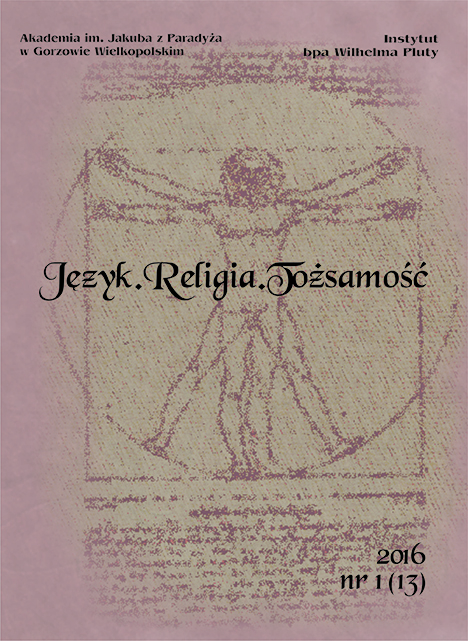Patriotyzm na kartach Kronik Klasztoru Jasnogórskiego z okresu Polski Ludowej
Patriotism within the Chronicle of Jasna Góra Monastery in the period of Polish People’s Republic
Author(s): Jarosław DurkaSubject(s): Christian Theology and Religion, Government/Political systems, Politics and religion, Interwar Period (1920 - 1939)
Published by: Akademia im. Jakuba z Paradyża
Keywords: patriotism; chronicle; order; communism; socialism; monastery;
Summary/Abstract: While reading the Chronicle of Jasna Góra Monastery we can find the Paulinites' definition of „patriotism‟ quite different from its official meaning popular in Polish People's Republic. They did not approve the acts of violence, socialist principles especially atheism. Paulinites understood the term „patriotism‟ as deep and true love for their mother-country; love connected sentimentally with such traditional values as: God – Honour – Homeland. Despite all the attempts to marginalize the Church, the Monastery remained the Polish spiritual capital city. In the Chronicle there is the sense of hope for better, undefined future. The hope was supported by religiousness and patriotic attitude of pilgrims frequently gathering at Jasna Góra. Any efforts of Communists could abstract Polish people from their religion. It was believed that the system and Government imposed by the Communists were only an episode of Polish history because they were not rooted in the tradition deeply. On the other hand, John Paul „s support was extraordinary important for Paulinites and their attitude towards the homeland. It also helped and mobilized illegal political opposition in Poland that succeeded in 1989 finally.
Journal: Język. Religia. Tożsamość
- Issue Year: 5/2011
- Issue No: 1
- Page Range: 63-79
- Page Count: 17
- Language: Polish

